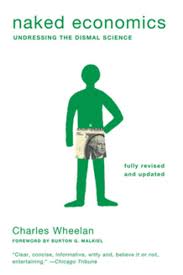COURSE DESCRIPTION
A one-semester survey of economics course covering both macroeconomics and microeconomics. This course is designed to meet the needs of students who are not majoring in accounting or business. This course will cover basic ideas from both microeconomics and macroeconomics but without using the traditional textbook approach that relies on a substantial amount of mathematics and graphing. It is designed to meet the needs of education majors who are required to take a course in economics. (Students pursuing a Business Education concentration are required to take EC201 and EC202.)
COURSE OBJECTIVES
Upon successful completion of the course, each participant should be able to:
- Develop an understanding of the power of markets in the efficient allocation of resources;
- Appreciate the crucial role that incentives play – in free markets even when governments attempt to prevent markets from functioning;
- Understand the situations in which relying on markets will fail to achieve good results and why government action may be necessary;
- Understand that government action involves its own biases and inefficiencies, meaning that the government solution may be worse than the (imperfect) market solution;
- Appreciate the key role that information – or the lack of it – plays in the functioning of markets;
- Recognize that a nation’s standard of living depends critically on productivity and the accumulation of human capital;
- Appreciate the role financial markets play in the workings of a market economy;
- Look at the functioning of the political process from the economist’s point of view;
- appreciate the complexities involved in measuring the performance of an entire economy;
- Understand the concept of money and the Federal Reserve System’s role in conducting monetary policy;
- Explore the role of money at the level of the international economy and how exchange rates work;
- Appreciate the importance of world trade and globalization to our standard of living;
- Explore the nature of the economic development process in explaining why some nations are poor and others are rich;
- Improve their research and writing skills;
- Learn to think like economists.
COURSE REQUIRED TEXTBOOK AND READINGS
Wheelan, Charles. Naked Economics: undressing the dismal science. (Fully revised and expanded edition) W.W. Norton. New York. 2010. ISBN: 978-0-393-33764-8

*There is a pdf file with the Introduction and Chapter 1 posted under Handouts, which is what is needed for Week 1. After that, all students are expected to have access to a copy of the current edition of the textbook.